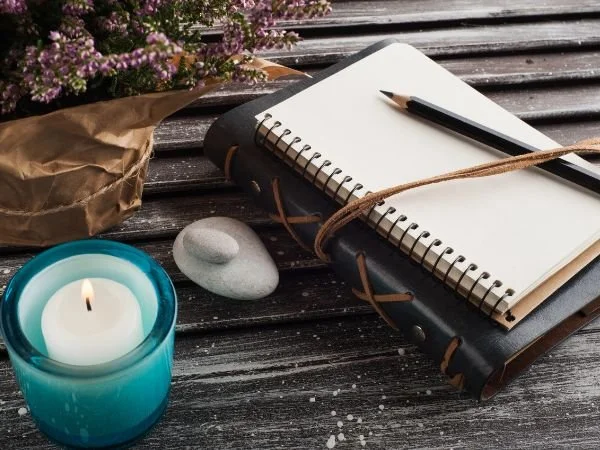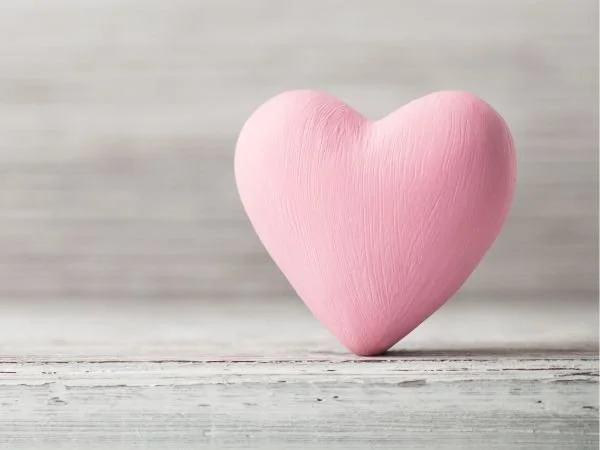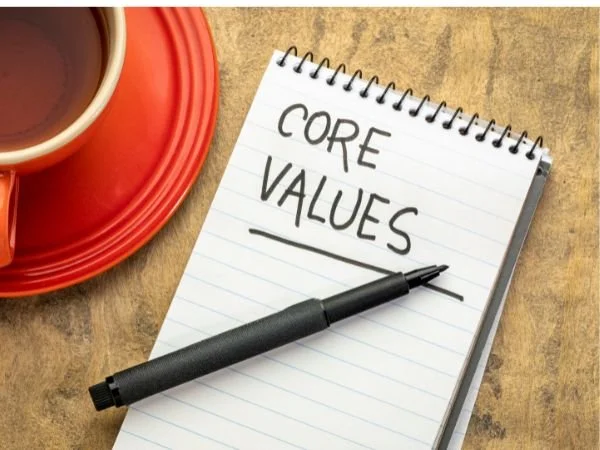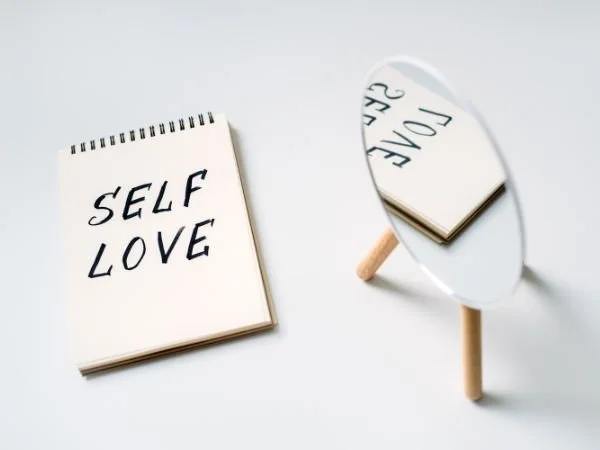132: I Can’t Change Him, Now What? The Quiet Strain of Addiction in Relationships
In this episode, I dive into the tough question of when to let go of a relationship, especially when addiction is involved. We explore how even culturally accepted addictions can impact a relationship and cause real harm. I respond to a listener’s question about loving a partner who won’t change, coping when your needs aren’t being met, and the painful tension between the good moments and ongoing hurt. We talk about how to be honest with yourself about what you truly need and why acceptance doesn’t always mean giving up.
128: Why You Can't Change Someone You Love: Letting Go of Relationships that Aren’t Good for You
131: Healing After Betrayal: How Do You Know When to Let Go?
Timestamps ⏱️
Introduction :05
Listener Question: 1:41
Outro: 16:23
Have you followed and left a review for New View Advice?
Let me know what you think of the podcast! Podcast followers and ratings help bring new listeners to the show, as well as help me to continue creating content. So if you enjoyed the show, I’d love to ask you to follow and leave a rating on your podcasting platform by:
Head to New View Advice on Apple or Spotify
Click Follow on your podcasting platform
Scroll down (or when promoted) click the 5 star rating!
-
This podcast was transcribed by an AI tool called Castmagic. Please forgive any typos or errors.
Amanda Durocher [00:00:01]:
Welcome to New View Advice with Amanda Durocher. Hi, beautiful soul. Welcome to New View Advice. My name is Amanda Durocher and if you're new here, this is a healing centered advice podcast where I offer guidance for the healing journey. I don't believe I have all the answers you seek. I believe you have all the answers. You just may need a new View and a little help along the way. Thank you so much for joining me for today's episode.
Amanda Durocher [00:00:20]:
Today we're continuing the conversation around when do we know when to let go of a relationship? So if you haven't already, I invite you to listen to episode 128, why you can't change someone you love and episode 131, healing after betrayal. How do you know when to let go? Because in both these episodes we also have this conversation around how to know when to let go of a relationship. So I invite you to listen to those episodes as well. But today's episode, we're going to continue this conversation and also dive into two things I don't think we touched on in the other episodes, which is one, what do you do when there's addiction within the relationship? Specifically an addiction that is culturally acceptable and isn't putting somebody necessarily at rock bottom, but it's an addiction that is impacting the relationship. And today we're also going to touch on what do you do when you feel like it's time to let go, but you see the good in somebody? The relationship isn't all bad. How do you weigh those good times and bad times, so to speak? So we're going to speak on both of those today. Before I jump into today's episode, I wanted to mention that if you haven't already, I invite you to check out my website, newviewadvice.com on nuviewadvice.com I have more resources for the healing journey. I have blog posts, poems, meditations, journal prompts, and more.
Amanda Durocher [00:01:24]:
So if you feel like you could use a little bit more support on your healing journey, I invite you to check that out. So now let's jump on into today's listener question and discussing how to know when to let go of a relationship. Hi Amanda, I hope you're doing well. I just wanted to say I continue to listen to your podcast and it's truly been helpful to me. So thank you for creating such a compassionate space. I have a question that's been weighing on me and maybe it's something you could explore on the podcast. I've been struggling in my relationship. One of the biggest issues is my husband's addiction to a chewing substance, something like tobacco.
Amanda Durocher [00:02:00]:
He uses it all the time. And while he sees it as normal, even culturally acceptable, it's had a big impact on our marriage. Emotionally, financially, and especially in how it creates a distance between us. When I try to talk about it, it usually turns into a fight. He gets angry sometimes slams things, walks out, or promises to quit, but doesn't follow through. He ends up blaming me instead and calling me selfish when I express how I feel. Communication has always been hard between us, and this makes things worse. I've tried everything.
Amanda Durocher [00:02:26]:
Calm talks, loving approaches, even arguments. But nothing seems to help. Lately, I've been facing the hard truth that maybe I can't change him. I've even brought up the idea of separation, but he refuses to consider it. What makes it even more confusing is that he also has a lot of good in him. He's not just the addiction or the arguments. That's what makes this so painful. I still see the good, and yet I feel so hurt and disconnected.
Amanda Durocher [00:02:49]:
And honestly, what breaks me the most is this feeling that maybe he doesn't care enough about me to let it go. So here's my question. If someone doesn't want to change or even talk about how their actions affect the relationship, how do you know what to do? Do I keep trying? Do I just live with it? Or is accepting it the same as giving up? I'm exhausted. I'm sad. I feel alone. I don't know what the right thing to do is anymore. Thank you for listening and for holding space for people going through things like this. Thank you so much for this question.
Amanda Durocher [00:03:17]:
I am so sorry that this is something you're navigating right now. It sounds stressful, and as you said, you feel exhausted and alone and hurt and disconnected. And this is unfortunately, all too common. So you are not alone, even though you feel that way. Because I think that different types of addictions impact so many relationships, especially these addictions like you mentioned, that are culturally acceptable. So I just wanna honor you here that what you are going through is hard, you are not crazy, and you deserve to be able to speak about what you need within your relationship. So first, I wanted to start with how you said you're beginning to realize you can't change him. And I truly believe that is true.
Amanda Durocher [00:03:56]:
You cannot change him. I talked about that in episode 128 as well. Unfortunately, when we wanna change people so often our motives or our intention is from a good place. It's from a loving place. But unfortunately, we can't change somebody else if they don't want to change themselves. Your partner here would have to choose change. He would have to take a step towards change. Now, that doesn't mean we can't invite somebody to change.
Amanda Durocher [00:04:19]:
You are allowed to ask for what you need. You can support somebody through change. Especially when people give up addictions. Oftentimes they do need support. So you are allowed to offer all those things. But at the end of the day, it would be his choice if he wanted to change. And it sounds to me like he does not want to change. That's the reality here, is that you've had multiple conversations and you said he often blames you when you ask him to give up this addiction.
Amanda Durocher [00:04:43]:
And blame is very common when it comes to addiction. I think that many times when people are addicted to substances or addicted to anything, really, I want to mention that here because I think this question's really interesting. Because as you mentioned, this addiction is impacting your relationship, even though it's culturally acceptable. And I think that's really important to note here because I think so often when we talk about addiction, we talk about people at rock bottom, or we talk about the people who have ruined their lives or the lives of those who they love. When truly most addictions have a slow impact over time. And addictions can be at all different levels. Some people are full blown addicts and they are gonna need rehab and help. And some people are struggling with an addiction that, as you mentioned, is culturally acceptable.
Amanda Durocher [00:05:28]:
And they're able to kind of keep it on the down low, so to speak. And so for you here, it's important for you to one, honor yourself that you're not crazy. If you feel like this substance is influencing your relationship and you feel its impact, then that's true. You mentioned it impacts you emotionally, financially, and the connection between the two of you. So though it's culturally acceptable, it doesn't mean that it can't have a negative impact. And the people who are impacted by those addictions the most are going to be the people who are closest to the person who is using that addiction. And so I think that you've mentioned here things that are very common when people have addictions. Emotional distance, promises of changing and then never changing, and then blaming you.
Amanda Durocher [00:06:08]:
Many times when people struggle from addiction, they are in a form of denial or they're deeply stuck in that pattern or behavior. Many people use addiction to cover up hard feelings, past experiences, trauma, a way to numb or to cope with something, or to not look at something. And so I mention all that here because you're not making this up. It is impacting you. But I also want to note that I don't think it's a reflection on you. The addiction is not about you. As in, it's not because he doesn't love you that he can't give it up. It's that it's likely that the addiction is aiding him in some way.
Amanda Durocher [00:06:44]:
It's a coping strategy. So in my life, I used to drink in order to cope with difficult feelings, social anxiety, hard feelings from the trauma I survived. It was a way I masked anger and emotions like that. The alcohol was something I often used to numb or to mitigate difficult feelings I had. Now, that wasn't benefiting me in my life, but I continued to use it until I was ready to let it go. Because I was seeing the negative impact it was having on my life. It was having a negative impact before I saw it. But it took a long time for me to be honest with myself.
Amanda Durocher [00:07:21]:
Nobody else could get me to that honesty point. I had to get there myself. Now, I had a few people in my life who told me that they could see the negative impact it was having on me. But it wasn't until I was ready to change that I was able to give that addiction up. So I mentioned that here because I think that when you say that you're afraid he doesn't give it up because he doesn't care about you. I don't think that's the truth. I think he cares a lot about you. I'm sure he does.
Amanda Durocher [00:07:44]:
As you mentioned, you guys have good times. You're in a loving relationship. But he's struggling with an addiction. And the question is, if he can't give that up and he can't change, can you still stay within this relationship because you said, is accepting it the same as giving up? No, I don't think so. You just have to be honest with yourself. Because I also think sometimes when we're trying to change somebody, somebody gets really defensive. But if he doesn't want to change, it's likely negatively impacting your relationship because he's obviously getting defensive again. You are allowed to ask for what you need.
Amanda Durocher [00:08:19]:
And it sounds like this addiction is negatively impacting a relationship. You definitely don't deserve to be blamed. You definitely don't deserve to be called selfish because you have a need. And you see how this addiction is impacting you emotionally, financially, and your connection. But I've just mentioned that, because if you do choose to say it's not accepting it and giving up. It's that you've chosen that, at least for now, this addiction is something that you can live with, because that's really the question you're gonna have to ask yourself at the end of the day, is, if he doesn't change, can you be in this relationship? Does the moments of happiness outweigh the stress you feel by this addiction? Because, yes, there is good in him. And that's what makes this decision so hard. I think most people aren't all bad.
Amanda Durocher [00:09:00]:
I think back on toxic relationships in my own life, and they were so hard to leave because there were good moments. There were moments where we laughed, There were moments where I felt loved. There were moments where we felt connected. But at the end of the day, there was also abuse. There was also addiction, for example. There were also things that were negatively impacting me. And when I made the choice to let these relationships go, it was because I knew the relationship wasn't benefiting me. I knew it was holding me back in some way, and I knew that it was harming me in many of the cases.
Amanda Durocher [00:09:31]:
But it's such a hard choice for us to make because I don't think anybody is all bad. And when we're in a loving relationship with somebody, we get to see the good in them. We love them also. Sometimes, though, we're holding onto past version of somebody, maybe they've changed in a not so great sense. We're holding onto a past version of them. And sometimes we hold onto somebody's potential. Also, we hold onto the idea of who somebody could be rather than being with the truth of who they are. So when we are choosing, if we wanna leave a relationship, we have to be honest with ourselves.
Amanda Durocher [00:10:00]:
We have to clearly see the relationship. And so often we blind ourselves by seeing somebody's potential or seeing the past version of somebody else and not being with the truth of who somebody is right now. Because we know, especially people who listen to this type of podcast, that as humans, we can change and we can grow. And that's amazing. But not everybody is going to choose to grow. Not everybody is going to choose to grow with you. Not everybody's going to change. I'm actually shocked how many people don't change at all.
Amanda Durocher [00:10:28]:
And that's a truth that we have to be with, especially as people who grow and change. Not everybody's doing that. You have to be honest with yourself also, if you're empathetic, if you're somebody who feels somebody's feelings deeply, this can come in when addiction's at play that you can empathize with why somebody is using that addiction. And it's important for you to empathize with yourself first. Because, yes, many people who use addiction have experienced trauma, have experienced very hard moments in life, and are using that addiction to mask something difficult. I know that was true in my life. But it wasn't until I went sober that I really was with the hardest things I have survived. And it was the most beneficial thing I could do for myself was go sober.
Amanda Durocher [00:11:10]:
I just wanna say that. And it's been the biggest gift I've given to myself. I also wanna say that. But when people struggle with addictions, it can be so easy to empathize with them. You have to empathize with you first. You have to be honest with how you are being treated. And a way you can do this is, if you saw your best friend or your sister or your brother or a loved one in the relationship you're in now, what advice would you give them? How would you tell them to handle this situation? What would you tell them about this relationship? Did they deserve how they're being treated? Sometimes it's easier to see a relationship clearly if we can kind of step out of it and see it as if it's happening to someone else. Or sometimes something I do is I will be in meditation and I'll kind of put a relationship on a movie screen.
Amanda Durocher [00:11:55]:
So you can kind of drop into a meditation and kind of see yourself sitting in a theater. This is a common meditation practice. But you see yourself in a theater and you look at the situation on a screen. So it's as if it's not happening right here to you in the moment. And by creating some distance, you can see it clearly. But I think for you, you're at a choice point within this relationship. You have to choose if this relationship is benefiting you enough that you can stay. And that would be accepting that this may never change.
Amanda Durocher [00:12:22]:
Or at least for the time being, your partner is not going to give up this addiction. That would likely have to be the case for you to have to accept that. Or you have to decide if this has had too much of a toll on you. If you cannot be there for this, if it's negatively impacting you. Because at the end of the day, true love does not ask us to abandon ourselves. It does not ask us to put ourselves second. True love to me, is being in a relationship where you feel safe with one another, where you feel secure, where you're able to grow and feel supported because. Because Our romantic partnerships, our family, our home is where we want to feel that sense of safety, belonging, and connection.
Amanda Durocher [00:13:00]:
So I just want to end this episode by letting you know that you deserve what you're asking for. You deserve to be seen, you deserve to be heard. You deserve to be in a loving relationship with somebody who does not blame you. It sounds like you've tried different forms of communication, but I do also invite you to maybe explore couples therapy regarding this. Maybe that is a step that your partner could take forward with you in order to discuss this addiction. Because you have to just be honest with yourself about what you need in order to stay in this relationship. Do you need the addiction to stop altogether? Are there ways you can be in the relationship if he's still using this chewing tobacco substance? But you have to be honest with yourself about what you need, because you deserve to have your needs met within this relationship, and you deserve to feel supported, secure, and safe within this relationship. You mentioned that this addiction was impacting you financially.
Amanda Durocher [00:13:48]:
Talking about finances can be really uncomfortable. But with your romantic partner, it's very important that you two can talk about finances. It's very important that you two are on the same page financially. And so you deserve to be able to talk about how this is impacting you financially and to feel heard and to find a way for it to no longer feel like it's impacting you financially. Because feeling financially safe helps us to feel safe. So that's a need. And that's okay that that's a need for you. I think that finances, it's just such an uncomfortable conversation for so many people, but it's something we definitely need to learn to talk about within relationships.
Amanda Durocher [00:14:22]:
And if we want to dive deeper, somebody can definitely write in a question about talking about finances within a relationship. I know Evan and I have definitely grown on that topic throughout our relationship. So I just want to wrap this episode up by saying that this is not an easy choice. So I honor where you're at. You do not need to rush your decision. You're allowed to take the time you need to feel comfortable with the decision you decide to make. But I do think you're at a choice point because something does need to shift within your relationship, doesn't have to shift overnight. But you said you're exhausted, you're sad, you're hurt, you're disconnected.
Amanda Durocher [00:14:54]:
You don't deserve to feel any of those things. You deserve to feel connected. You deserve to feel loved. You deserve to feel safe and seen, and you deserve to feel happy within your relationship. So I invite you to explore what you need. Though it is a hard choice to let go of a relationship, know that it can be very liberating if a relationship has been depleting us for too long. And so again, this isn't an easy choice. And I honor where you're at.
Amanda Durocher [00:15:23]:
And before I wrap up, I just want to mention you are not crazy for how you feel. You are allowed to have needs. You don't deserve to be blamed or called selfish within your relationship for just trying to voice what you need. You deserve to feel loved and supported. It sounds like you're at a choice point and it's not an easy choice to decide if you want to stay or not stay in this relationship. As I've been saying in every episode recently, something that I like to remember in my own life is that relationships come into our lives for a reason. A season or a lifetime. But they're all not meant to be a lifetime.
Amanda Durocher [00:15:52]:
Some just come in to teach us lessons. Some come in for a season of our life. But the truth is we change throughout life through that change. Not all relationships last, and we deserve to surround ourselves with people who support us, not people who hold us back. And that can be one of the hardest lessons as a human. I truly believe that. But you deserve to once again feel safe, supported and loved within your relationship. Thank you so much for this question.
Amanda Durocher [00:16:16]:
I'm sending you so much love. Thank you so much for joining me for another episode of New View Advice. As always, I'm so grateful that we're able to have these conversations. If you have a question, I'd love to hear from you. You can write in@contactewadvice.com or you can fill out the question form on my website@newviewadvice.com? thank you again for joining me for another episode of New View Advice. I hope I was able to offer you a new view on whatever you may be going through. Send you all my love. See you next time.


































